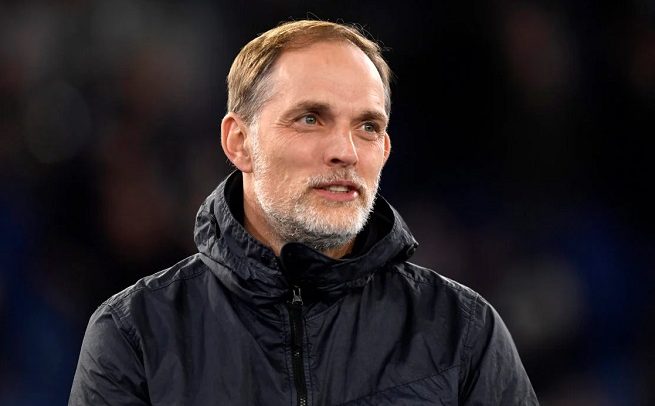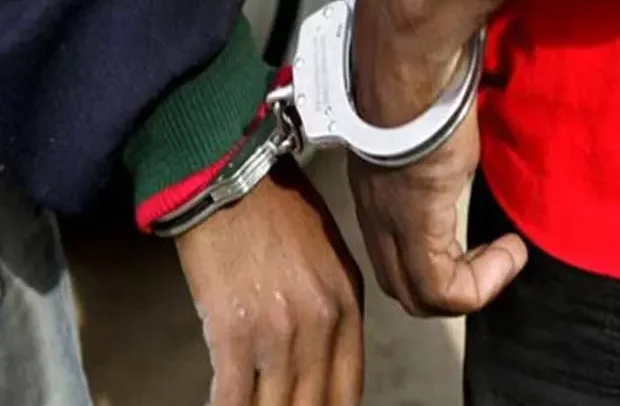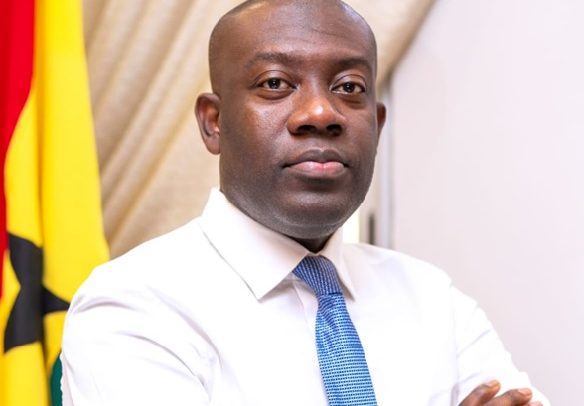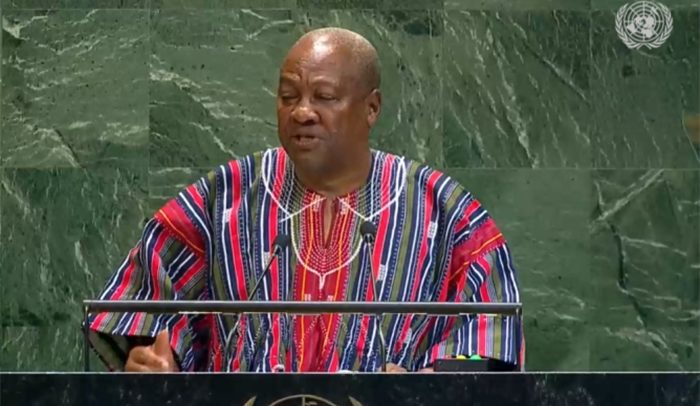![15 things NPP can do differently for the environment [Article]](http://citifmonline.com/wp-content/uploads/2015/10/refuse-after-flood-10.jpg)
Change has come and everyone seems to be happy. Everyone except the outgoing government, I suppose.
But to whom much is given, much is expected and the newly sworn in New Patriotic Party (NPP) is no different.
As a public commentator on the environment in Ghana, my interest is to make the incoming government aware that they have to fulfill their promises.
The environment has been heavily ignored in the past (by both the NPP and NDC) and if change has truly come then this must also change.
Here, I have compiled a list of 15 things that Nana Addo and his governing party can do to make Ghana’s environment the one that Ghanaians deserve.
Most of the things mentioned are already in their manifesto but some are not.
Here’s my list:
1.Forest Protection
Let’s understand why forests are important. Forests provide us with the oxygen we need to breathe. They purify the air from pollutants and serve as habitat for most of our wildlife. Forests are also our biggest protectors against climate change.
They absorb carbon dioxide from the atmosphere, they keep temperatures cooler, they help regulate rain patterns and they prevent flooding. Ghana loses at least 2% of its forests per year since 1990. The NPP manifesto targets planting trees on 30,000 hectares of degraded land within and outside forest reserves every year. That’s about half the size of the entire Tema Metropolitan Assembly. This would be revolutionary if implemented.
The Progressive People’s Party (PPP) wrote that they would help combat climate change by providing alternative income sources to rural dwellers. I wish the NPP government would be shameless enough to steal this idea. This is important in curbing the cutting down of trees for fuelwood and charcoal. There are briquettes (charcoal made from waste) and clean cookstoves (like gya pa) that can help them make money and save our forests.
2. Water Body Protection
The truth of the matter is that if we don’t protect our water bodies, eventually we will have no water to drink and that is all. We are degrading our own water bodies with human activity. Galamsey (illegal mining) is high on the list. Another is the dumping of waste into rivers. Recently, Ghana Water Company issued a warning that some water treatment plants might be shut down because it was becoming too expensive to treat the water that runs through our pipes. We have made our water so dirty we can’t even afford to purify it to drink/bath/cook.
How do we survive as a nation if we are unable to treat our water for domestic and industrial use? Laws regarding our water bodies need to be enforced. We can’t compromise on this. The NPP has made a lot of promises including a Clean Rivers Programme, replanting of trees along river banks and collaborating with traditional leaders. May it not just be a promise.
3.Water Body Protection
Ghana’s water coverage, despite public perception, has actually seen steady positive progress over the years. Latest reports indicate that from 1990 to 2015 access to improved water sources in the country rose from 56% to 89%. With that in mind, I think we are capable as a country of reaching 100% coverage by the end of NPP’s first term – the year 2020. But this coverage should not just be to provide water but to provide quality water. Many of our piping systems in urban areas have degraded and hence are contaminated with waste water causing us to not trust the water coming through our pipes. Once upon a time, we drank this water confidently and there was no need for the pure water industry. Its existence and thriving (there are more than 1,000 pure water companies registered in Ghana now) is an indictment on the Ghana Water Company and reflects a poor maintenance culture of our infrastructure. Yes, we can do better.
4.Illegal mining (Galamsey)
Undocumented and untaxed trading in valuable national resources, destruction of farm lands, destruction of water bodies, deaths from uncovered pits and conflicts, rare diseases from chemical contaminations. Need I say more?
In order to address this menace once and for all, we have to indulge the exercise of asking why young men and women resort to engaging in such a risky, tiresome, dirty, destructive source of livelihood in the first place. The most obvious reason would be that there is little more lucrative to do in these communities. Another reason may be that the youth are generally uninspired to explore their talents or be patriotic enough to protect their heritage from looting and destruction. Each community is different. Assumptions cannot be made. Instead there must be a dialogue with the locals in each area to resolve differences, weigh solutions and laws must be revised and enforced. Traditional leaders that have sold concessions of land to illegal Chinese miners should be named, shamed and dealt with. Illegal immigrants engaged in galamsey must be deported and the lands and water bodies degraded must be restored and protected. Yes, it’s a tough job but we said ‘Change Has Come’!
5. Sanitation & Waste Management
The sooner we stop playing the ostrich when it comes to our sanitation and waste management challenges, the better. There has been continuous outcry about the litter on our streets, the prevalence of plastic in our drains and the inability of our waste to be picked up from our residences on time. We are persistently shamed by the open defecation that makes so many of our beaches appalling, the annual outbreak of cholera and the fact that only 14% of our population has access to appropriate toilet facility at home. Part of the reason why our problems seem to be perpetual is because its never been a priority of leadership and yet sanitation is directly linked to the health of the nation which takes a toll on our strength to work and improve our economy. The responsibility of seeing to our sanitation challenges has been spread through the Ministry of Local Government and Rural Development, the Ministry of Environment and the Ministry of Health.
Due to this disjointed structure of responsibility, various institutions are always passing the buck and concise plans towards investment in infrastructure, service provision, education and law enforcement elude us. A serious restructuring of the administration concerning Sanitation and Waste Management needs to take place. One entity should be tasked to supervise these challenges and it should be well resourced both financially and professionally. All private contractor monopolies should be broken and young people should be incentivized to create business out of sanitation. Our engineers, planners, environmental health officers, prosecutors and judges should be charged with concrete targets and incentivized to perform and see to it that our national image is raised from one of the dirtiest nations in the world to one of the cleanest. It is befitting of us.
6.Climate Change
Climate change is a reality that we have to face head on. Gone are the days when it was debated. There are two ways of combating climate change: mitigation (work to prevent it from worsening) and adaptation (we change the way we do things to cope with the challenges).
We are no longer able to predict our rainy seasons or harmattan. The Ghana Meteorological Agency has been underresourced and ignored for far too long. It is in national interest the Institution is funded in order for them to properly execute their mandate and we can predict rain better and follow weather patterns. We need reliable data in order to plan national strategies, to cope with the changing climate as it affects so many aspects of our life from flooding to agriculture to tidal waves. We have a Climate Change policy that must be implemented. Ghana is a signatory to the United Nations Framework on Climate Change Convention. We must uphold our responsibilities.
7. Urban Planning
Do our cities and towns look like they were built according to any plan? In what ministry does the Department of Town and Country Planning currently sit? It’s been moved so many times I’ve lost track. It’s another institution that has been so poorly resourced and we’ve paid dearly for it. When we fail to plan our cities well then we are indirectly planning for disaster. The irony of our haphazard growth of our cities is that in many instances plans of old exist but were not followed, let alone updated; sanitation sites, green spaces and parks, market areas, lorry stations, walking pavements, billboards, residential versus industrial areas, illegal kiosks, placement of high rise buildings, the list goes on. The NPP has promised promoting the use of local building materials, installation of solar panels on new houses, slum upgrading, Zongo infrastructure, and to develop a light rail system for the transportation of goods and connect major cities to reduce traffic. They’ve even promised to find alternative livelihoods for kayayei. Wouldn’t it be lovely if it all came true?
8. Flooding
And that takes us to our annual disgrace, flooding. During the rainy season last year I compiled the National Ghana Floods League Table. When 2016 ended I updated it and gathered that there were 34 flooding incidents in all 10 regions of Ghana killing 16 people and displacing 13,630 people. Such a preventable tragedy yet every year we allow it to take lives, destroy property and spread disease. I wrote my thoughts on this last year for GhanaDecides. I believe that the occurrence of annual flooding in Ghana is a symptom of a national low self-esteem. If we prided ourselves in our nation we wouldn’t allow the very rain we need to sustain our lives to be a source of panic. The solutions have been written and documented by many. What is required is the courage to implement them: to plant more trees, to remove buildings in the path of waterways, to dredge and cover our drains and punish littering, and to ban single-use plastic. Change is not easy but if change has come then let us truly change.
9.Coastal and Marine Protection
For a coastal nation that loves fish and depends so much on the sea for livelihoods, its amazing the way we treat our coasts and seas like borla so (garbage dumps). Fishermen collect as much garbage as fish in their nets. Our ocean waves are polluted with plastic waste, poisoned and dead whales are tossed on our beaches too often. The signs are clear that our sea is sick and needs healing. And it is to our benefit. Just as humans cannot thrive on a polluted earth, marine life cannot thrive on a polluted ocean.
Add to this overfishing, illegal fishing methods and a lackadaisical approach to dealing with foreign vessels roaming in our seas freely.
The NPP in its manifesto has committed itself to “enforce the Fisheries Act, 2002, ensure that our marine police unit is expanded and resourced and restore the Korle Lagoon, including the reintroduction of its fish stocks.” I look forward to riding a boat on the Korle like they used to back in the day.
10. Ecotourism
All the natural blessings of our nation could be a large source of foreign investment, income and pride if we are smart about it. Indeed, nations like Tanzania, Botswana and Madagascar come highly recommended by the International Ecotourism Society. They don’t have cocoa or gold or oil and so they have made the most of what they have been endowed with. We can do the same. There are many existing sites that can be improved, made more environmentally sustainable and marketed to the world. Wli falls near Hohoe, Mole National Park, Kakum National Park, Fiema Monkey Sanctuary near Nkoranza, Tafi Monkey Sanctuary in Volta Region, Bobiri Butterfly Sanctuary near Kumasi, Paga Crocodile pond, Lake Bosomtwe and even the Sakumo Ramsar Site. No need to reinvent the wheel, just follow the international trends and get a few certifications. Of course all of the other things mentioned above must also be taken care of so the country is all-round environmentally friendly. That in itself will attract its own crowd.
11. Renewable Energy
Our energy challenges have become so notorious that ‘Dumsor’ is now a word known all over the African continent to represent inconsistent power supply. The sad thing is that our efforts to address these obstacles have been in the wrong direction. As an equatorial country, it’s a no brainer that investments be made in solar energy. As a coastal nation, it’s a no brainer that investments be made in wind energy. As a country suffering from the impacts of climate change, investments into coal power plants should be taboo. Renewable energy is the way forward internationally and the sooner we turn our national policy in that direction, the better for us. Its just that simple.
12. Agriculture
As an agricultural country we must continue to improve our methods and guard the very environment that ensures our yields and food security. In 2015 agriculture counted for 45% of employment, in 2013 it was 54%. This can rise even higher if we are strategic and update our practices to reflect current challenges.
The NPP has pledged to rehabilitate existing public irrigation schemes promoting the “One Village, One Dam” policy, require caterers to buy and use foodstuff grown locally from local farmers and increase subsidies on seeds and fertilizers. One thing I hope that they would add would be to create a favourable environment for the growth of the organic farming sector.
This includes the production and sale of organic fertilizer which makes use of organic waste including agricultural waste. This would increase our exports to foreign markets as well as help combat agricultural diseases, increase the fertility of our soils over time (instead of depleting them as chemical fertilizers do), lengthen the shelf life of our produce, prevent erosion and make our food healthier. A healthier nation is a more productive nation.
13. Research
Ghana is a booklong country. We’ve got universities, institutions, doctors and professors. Our problem is that these researchers hardly connect with private sector and the private sector hardly connects with the research. This needs to change. All of the above mentioned sectors of the environment depend on principles of science and a country without sound research which has been applied and tested can’t expect to see much progress in solving problem. Rwanda, known as the land of a thousand Hills, publishes a ‘State of the Environment and Outlook Report’ every two years. A look at the 224-page 2015 report looks brilliant and refreshing and scholarly. It covers everything from governance to poverty to education to technology within the context of their environment.. A glance at Ghana’s EPA website has many of its pages blank. It leaves one wondering if such a report has been produced at all and if so, why isn’t it available online for the public to access?
14. Law Enforcement
Many are of the view that Ghanaians need an attitudinal change to improve their behavior towards the environment. I disagree. The phrase attitudinal change is very vague and doesn’t hold us to concrete results. When someone enters a bank, they know they are to be quiet and not receive calls.
Not because there was a mass educational exercise on this but because if you break the rule, you’ll be walked out by a security officer. And so everyone complies. We’ve just come to the end of a successful presidential and parliamentary election. Indeed there was a brief national education exercise on the process but more importantly security personnel were given a special dispensation and deployed all over the country to ensure law and order. And this greatly contributed to our success.
- And so it is for all the above mentioned environmental issues. Without the enforcement of law and order, without punishments that bite, without sanitation courts and sanitary inspectors, without forestry officers and building inspectors, we cannot expect the attitudes of our people to change by magic. For many it will be a bitter pill to swallow but the political will to enforce change must be strong otherwise change will not come, sadly.15. But Don’t Do These Please…
- National Sanitation Day. I have previously written on why I don’t like cleanup exercises. I believe that the nation would be better served ensuring that the right thing is done everyday instead of surface cleaning once a month.
- Open drains. Let us aspire to make covered drains a requirement for newly constructed roads so that they don’t get filled with waste and silt.
- Rename or change forest reserves into ecoparks. As mentioned above under ecotourism, there are many spaces already in existence in Ghana that can be improved to promote ecotourism. A forest reserve, as the name implies, is meant to keep the forest as close to its natural state as possible. That means a focus on the thriving of plants and animals within that forest area for the improvement of the environment, not the increasing of the comfort of human beings to invade the space. We have invaded enough already.
- Spend money to dredge the Odaw River and Korle Lagoon then leave them unprotected to be refilled with plastic and human waste.
- Allow trotros with obsolete engines to continue to pollute our air with toxic fumes.
- Allow recycling industries to fail by charging exorbitant duty and taxes on equipment imports.
Over to you, Mr President. Change has come!
–
By: Akua Akyaa
email:[email protected]
greenghanaians.org














Facebook
Twitter
Pinterest
Instagram
Google+
YouTube
LinkedIn
RSS